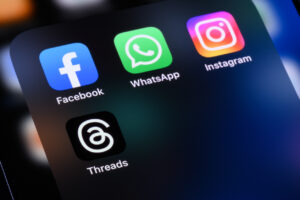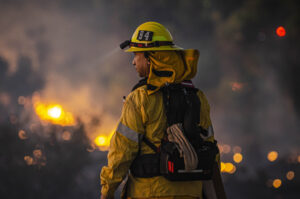The Daily Scoop: Another university struggles to handle Israel-Hamas fallout
Plus: “Taylor Swift: The Eras Tour” extends Swiftie cultural mayhem, some popular places are banning influencers.
The Israel-Hamas war has put a major spotlight on the University of Pennsylvania. The school faces scrutiny for delayed communications on the current war and its response to a Palestinian literary festival held right before Yom Kippur, the New York Times reported. University President Liz Magill gave a long-awaited statement on Oct. 15 addressing both situations.
Jewish students and community leaders protested some festival speakers because they had made anti-Semitic remarks in the past, per the Times.
“I know how painful the presence of these speakers on Penn’s campus was for the Jewish community, especially during the holiest time of the Jewish year, and at a University deeply proud of its long history of being a welcoming place for Jewish people,” Magill said in the statement.
With the ongoing war, donors threatened to stop giving money and Penn Trustee Vahan H. Gureghian, founder and CEO of CSMI, announced his resignation Saturday.
After megadonor Marc Rowan threatened to cut off funds, Magill made a statement that seemed too little, too late.
Why it matters:
Magill’s very late statement was problematic because it was done only after threats to withdraw funding and Gureghian’s resignation.
Speaking out one week after the Israel-Hamas war was also bad timing. Other universities spoke up much faster — though others, like Harvard, also bungled the response. Magill’s week-late statement made the university look inconsiderate and uncaring.
“We should have moved faster to share our position strongly and more broadly with the Penn community,” Magill said Sunday.
The university also had bad timing by not thinking about the cultural and religious issues that could crop up by allowing the conference to take place around the time of Rosh Hashanah and Yom Kippur, which left students and community members feeling outraged and unsafe amid the anti-Semitic comments from some speakers. Magill spoke previously about the festival but didn’t factor in the importance of timing.
Be measured and thoughtful in your response timing. Get the facts and move accordingly before making a statement. But if you’re responding only after controversy, your statement could come across as unauthentic. This could make your stakeholders feel that you’re only saving face.
Editor’s Top Picks:
- Some coveted locations are turning against influencers, Mashable reported. Dae, a popular Brooklyn café, felt overwhelmed by hordes of influencers who brought in tripods and over-the-top photoshoots, so they banned them. “We love food and drink photos (clearly),” Dae posted on Instagram. “But the TikToks and Instagram photoshoots have gotten a bit out of control for us.” Pomfret, a Vermont town, moved a similar way and kept influencers out during a certain timeframe. The town closed off its most popular influencer and tourist spots between Sept. 23 and Oct. 15 due to “significant safety, environmental, aesthetic, and quality of life issues.” Towns and businesses aren’t the exclusive domain of influencers. Yes, they may get some positive buzz from their presence, but that won’t help in the long run if the general experience is compromised. Stand up for your base customer and don’t be afraid to enforce your rules.
- “Taylor Swift: The Eras Tour,” is now a cultural phenomenon on the silver screen, CNN reported. The movie garnered roughly $96 million in the U.S. and Canada. It’s anticipated to be shown “to big audiences for weeks to come,” Elizabeth Frank, AMC executive VP of worldwide programming and chief content officer, told CNN. The film also repackaged the concert experience for those who couldn’t attend the event for financial reasons or if they lived far away. Brands, think of ways to extend the shelf life on your product, promotion or campaign. Capitalize on an earlier, popular wave that your stakeholders love and add to that. Find new strategies to bring your messaging to life again and connect with your audience in a renewed way.
- Family Dollar issued a recall for almost 300 items, the New York Times reported. The products. ranging from lip balm to cold medication, were stored in inappropriate temperatures before being sent to stores. “To date, Family Dollar has not received any consumer complaints or reports of illness related to this voluntary recall,” per a company statement, according to the Times. “This recall is … out of an abundance of caution.” Family Dollar was proactive in its voluntary recall response. Take the extra step to communicate ahead of time to stakeholders if there is something wrong. Be transparent and consumers will trust your brand.
Sherri Kolade is a writer at PR Daily. When she is not with her family, she enjoys watching old films, reading and building an authentically curated life. This includes, more than occasionally, finding something deliciously fried. Follow her on LinkedIn. Have a great PR story idea? Email her at sherrik@ragan.com.







